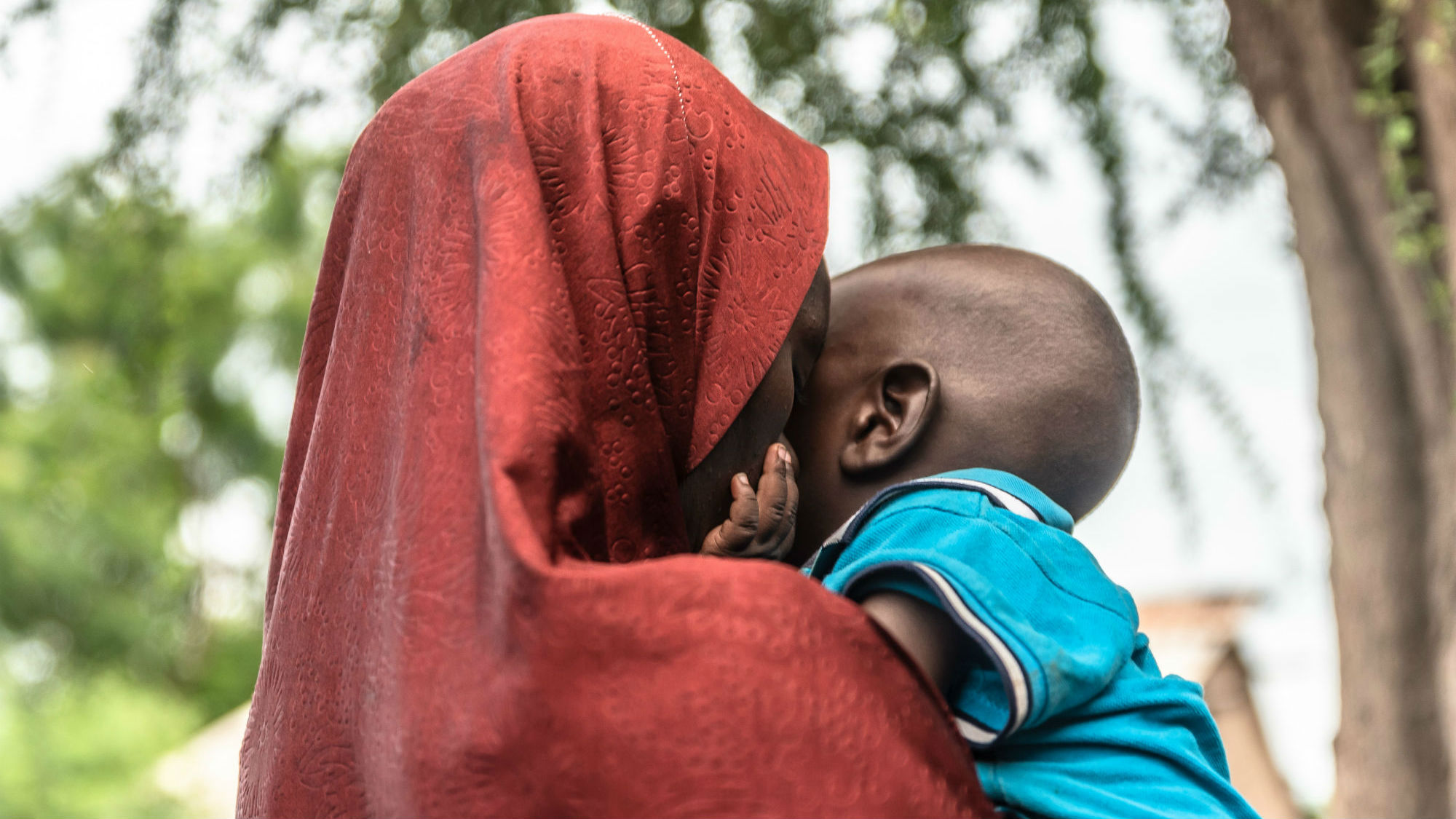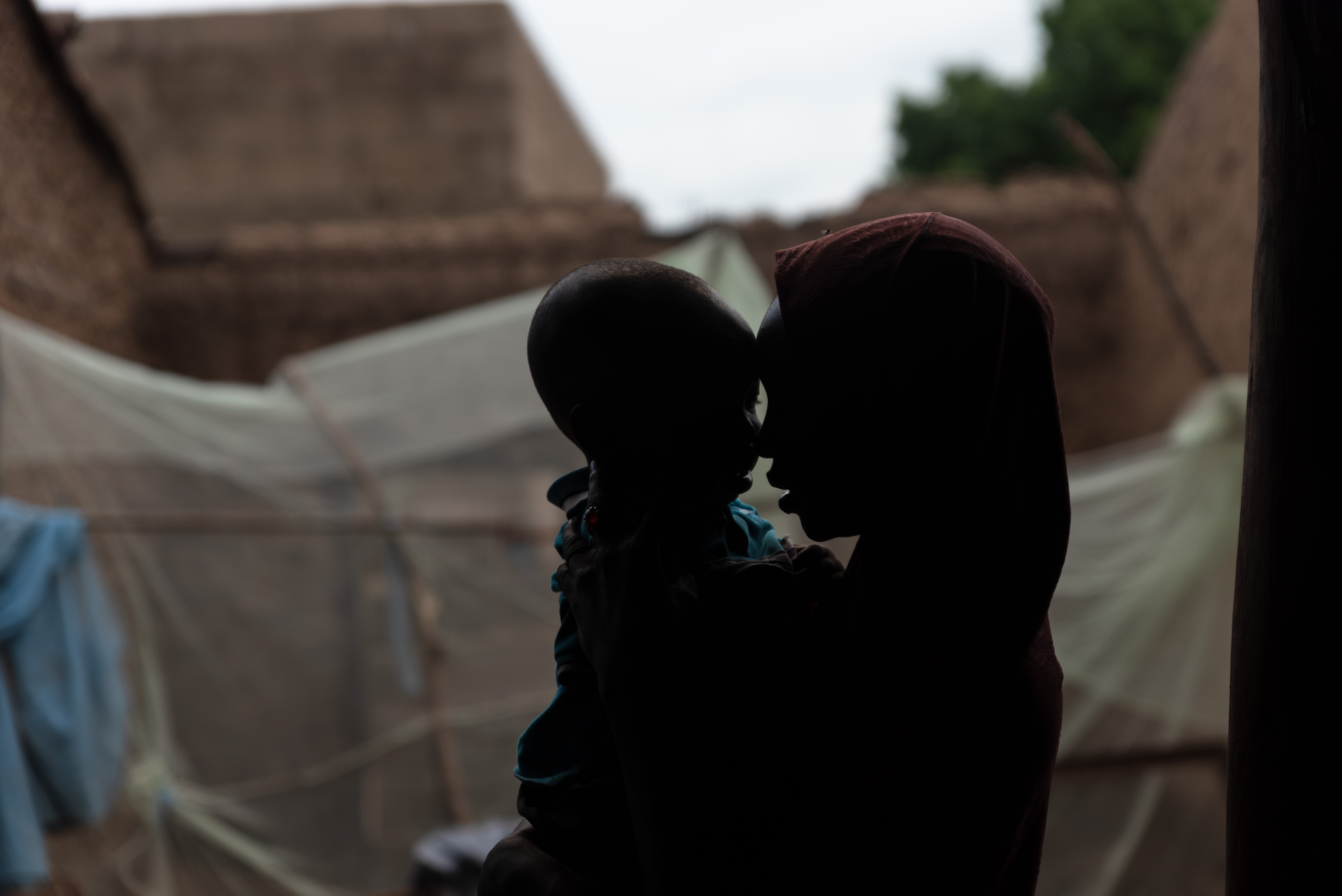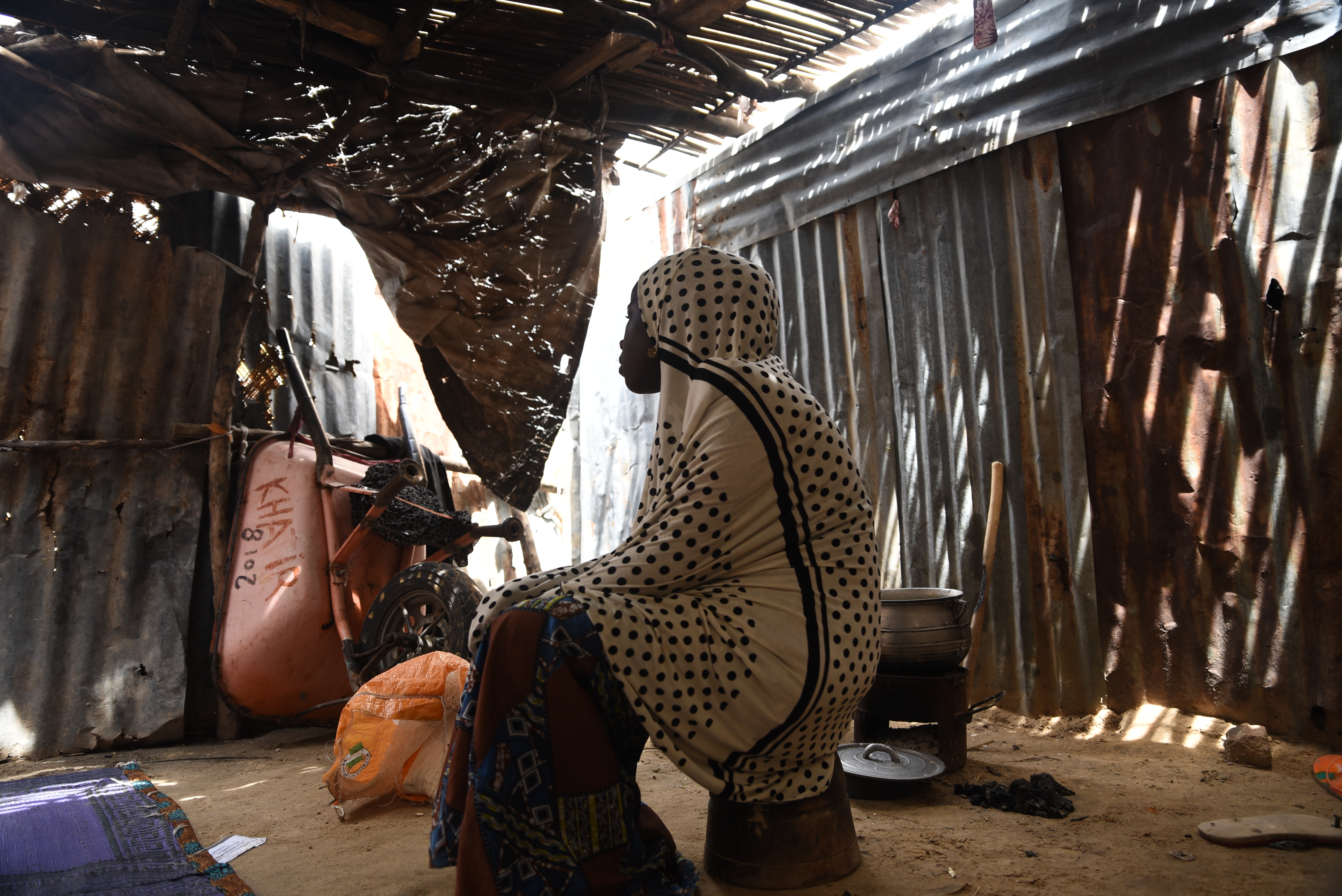They were child brides who escaped Boko Haram. Now, they must escape the stigma
Imprisoned, raped and beaten by Islamic extremists, two teenage survivors of the brutal Boko Haram insurgency reveal their relief at being rescued - and their fight to efface the shame

Imprisoned, raped and beaten by Islamic extremists, two teenage survivors of the brutal Boko Haram insurgency reveal their relief at being rescued - and their fight to efface the shame
Several hundred children still remain in Boko Haram’s captivity and, globally, only around 0.1 per cent of humanitarian funding is directed towards addressing violence against women and girls. Leading child protection agency Plan International, with support from players of the People’s Postcode Lottery, is supporting children associated with armed forces and armed groups (CAAFAG) to improve their psychosocial wellbeing, rebuild their livelihoods, and surmount the stigma they suffer in their own communities - or even in their own families.
Fatima* was just 13 when she was taken from her home in Borno state in Nigeria’s North East region in 2014 and held captive by jihadist group Boko Haram for more than three years. Before she escaped, she was forced to marry one of her captors and, after repeatedly being raped, gave birth to a baby boy when she was just 15 years old. Oomi*, 18, witnessed and was subjected to unimaginable horrors of violence and exploitation before escaping from the terrorist group's clutches. Today, they have the support of Plan International - but the homes they returned to were very different from the ones they left behind.
Fatima
'When Boko Haram came to my hometown, they took me away and locked me up in a prison-like place. I was kept completely isolated. I couldn’t see anybody – I couldn’t even contact my parents. Not long after, they moved me to a new location and forced me to get married. I didn’t get any say in it. My husband married three of us, so he had a routine. He would come two or three times a week and force himself on each of us in turn.
I lived in a small grass hut. There was no food, so when our husbands went out on a mission, we would go in search of small leaves to eat. We had enough water, but no food at all.
I was five months pregnant when I realised I was expecting a child, and it was hard to come to terms with that. When I gave birth there was no one to help me, just my neighbour who cut the umbilical cord. Being a mother was all new to me because I was still a child myself, and there was no one to show me what to do. So, I had to use my instinct based on what I had seen around me growing up - like how to breastfeed.

When my son was five months old, I managed to escape at night by saying I needed to go to the toilet. I ran through the mountains and slept under the trees for two nights. When I got help, it was from a group of soldiers. I was scared when I first saw them, because sometimes Boko Haram wear soldiers’ uniforms so you don’t know if they are friends or foes. But when they told me they were there to help me, I felt relieved.
Celebrity news, beauty, fashion advice, and fascinating features, delivered straight to your inbox!
After three days I was allowed to see my parents, and I was so happy I cried with joy. Although my baby’s father is a member of Boko Haram, I have put that behind me. I try not to reflect back on my past. Although I do not love my son’s father, I have bonded with my baby and we have become very close. Since my parents have accepted my baby and not neglected him, why would I as his mother? But some of the people in the community have a problem with me because of where I was held prisoner. When my son is playing outside, they will say he’s a child of Boko Haram. They like talking about him and that’s stigmatised me; it makes me feel uncomfortable.
My son is 17 months old now and I want a better future for him. I want to be able to earn money to support him, and take that responsibility away from my parents.'
Oomi
‘It was very early in the morning when Boko Haram came. They were wearing black clothes, they had long hair tied at the back and they had painted their bodies black, too. They announced that our town and the local government was under their control.
My father and brother were taken away and my sister and me were taken to a house. I had no idea what had happened to my mother. In the house, they told us that we weren’t allowed to leave, and that our current religion was not good enough and we would have to follow theirs. We would also only eat one meal a day.
Later, five women broke free and ran for their lives. They were caught and killed in front us. We also received 55 lashes of the cane for not telling them that they had been planning to escape.
One of the things I had to do was deliver bombs to other factions of Boko Haram. If we were afraid of holding them, they would assure us that they wouldn’t explode. But sometimes they would and I would see someone die in front of my eyes.

We had to wear black hijabs and black masks, so it was only our eyes that you could see. If they wanted to do something bad to someone they would tie a blindfold over their eyes so they couldn’t see what was going to happen.
My sister was raped in front of everyone. They didn’t mind where they did it, and even though girls would be crying and pleading, they did it anyway. There was nothing anyone could do.
One day a helicopter flew over where we were staying and dropped a bomb. We scattered and because some of Boko Haram were injured, I was able to start running through the bush with two other girls next to me. One of the girls was pregnant, and she gave birth while we were running. We didn’t know what to do, but somehow we managed to deliver the baby. We used a branch from a tree to cut the umbilical cord. After that, we managed to carry the baby and keep running.
If we saw dirty water, we drank, and then we ran again. We did that for a good three weeks, until one day we heard shooting, and realised it was the army. I was so happy – I felt like I was in heaven.
I was 16 by then and I was so ill I could hardly open my eyes. My legs and stomach had swollen up. I couldn’t eat. The army took us to hospital – where I stayed for three months – because we were so malnourished.
While I was there, the army put the word out that some girls had returned from the bush, so people were told to come and see if it was their child. When I saw my parents again, I was so happy and excited, but I couldn’t speak for two weeks. It was because of the things I had seen. I was traumatised. I couldn’t sleep. And if I did, I would see them coming in my dreams at night.
It took me about a year to be able to tell people what really happened. But since I started coming to the Child Friendly Space, operated by Plan International, and interacting with people every day – other girls like me – it has given me the courage to talk. When I’m at school, it helps me forget. But when I come home and I’m alone, I start thinking about my sister. I can’t stop thinking about her. Is she alive? Is she dead?
When I was in captivity a lot of people were injured and there was nobody to take care of them. Now, I want to become a doctor. I want to save lives. I just wish there was something that could be done about my sister. I wish she could be rescued.'

(*Names changed to protect identity)
For more information on Plan International's work, and to donate, see plan-international.org
Olivia – who rebranded as Liv a few years ago – is a freelance digital writer at Marie Claire UK. She recently swapped guaranteed sunshine and a tax-free salary in Dubai for London’s constant cloud and overpriced public transport. During her time in the Middle East, Olivia worked for international titles including Cosmopolitan, HELLO! and Grazia. She transitioned from celebrity weekly magazine new! in London, where she worked as the publication’s Fitness & Food editor. Unsurprisingly, she likes fitness and food, and also enjoys hoarding beauty products and recycling.